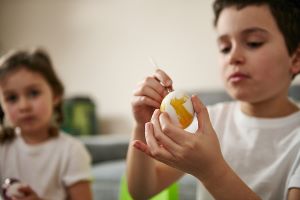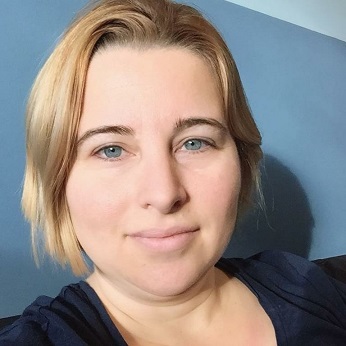September 12, 2023
by Patricia Tomasi
 A new study published in the Journal of Child Development looked at infection detection in faces and children's development of pathogen avoidance.
A new study published in the Journal of Child Development looked at infection detection in faces and children's development of pathogen avoidance.
“We were interested in understanding whether children ages four to nine years old can avoid and recognize sick faces,” study author Tiffany S. Leung told us. “Previous studies have reported that adults can use faces to recognize when someone is sick and make judgements about whether to approach or avoid them. However, so far, no studies have measured children’s responses to sick faces. To improve public health, it is important to understand how children’s ability to recognize and avoid sickness emerges and develops.”
Humans are theorized to have evolved a behavioral immune system that detects and facilitates avoidance of contagious disease before close contact. One part of this behavioral immune system may be the ability to recognize cues of sickness in faces. Given that children start to learn about disease and how it spreads when they are around four to nine years of age, the researchers of the study hypothesized that the ability to recognize and avoid sick faces would begin during this period. As people become more experienced and knowledgeable about disease with age, they also expected that sensitivity to sick faces would improve from early childhood (four years of age) into adulthood.
“While previous research has explored how adults respond to sickness, no studies have focused on children’s responses to sick faces,” Leung told us. “Our ultimate goal is to use the findings from our study to enhance the health of children and their communities.”
The researchers collected photos of people’s faces when they were feeling sick with a short-term, contagious illness, such as COVID-19, and when they were feeling healthy (fully-recovered). They then recruited 160 participants who were four to five years old, eight to nine years old, and adults. They were primarily U.S., White, and not Hispanic. In child-friendly online games, the researchers presented two face photos (one sick and one healthy). In the first game, they asked participants which person they wanted to sit next to at dinner (to test who they would rather approach). In the second game, they asked participants to identify which person was feeling sick (to test whether they could recognize the sick person).
“We found that eight to nine-year-olds, like adults, avoided and recognized sick faces,” Leung told us. “However, adults were more accurate at avoiding and recognizing sick faces than eight to nine-year-olds, who were more accurate than four to five-year-olds, suggesting that these skills improve with age. Children who were more accurate at recognizing sick faces were also more accurate at avoiding them, possibly indicating that these two skills may go hand-in-hand.”
The results supported the researchers’ hypothesis that sick face sensitivity emerges in childhood and improves with age. The results suggest that there is a functioning system in place during childhood that enables children to recognize and avoid sickness using cues in the face. The finding that sick face sensitivity improved with age is also in line with the idea that experience and maturation may support our ability to avoid disease. Understanding how children perceive facial cues of sickness may support efforts to teach children how to avoid disease and improve public health.
About the Author
 Patricia Tomasi
Patricia Tomasi
Patricia Tomasi is a mom, maternal mental health advocate, journalist, and speaker. She writes regularly for the Huffington Post Canada, focusing primarily on maternal mental health after suffering from severe postpartum anxiety twice. You can find her Huffington Post biography here. Patricia is also a Patient Expert Advisor for the North American-based, Maternal Mental Health Research Collective and is the founder of the online peer support group - Facebook Postpartum Depression & Anxiety Support Group - with over 1500 members worldwide. Blog: www.patriciatomasiblog.wordpress.com
Email: tomasi.patricia@gmail.com